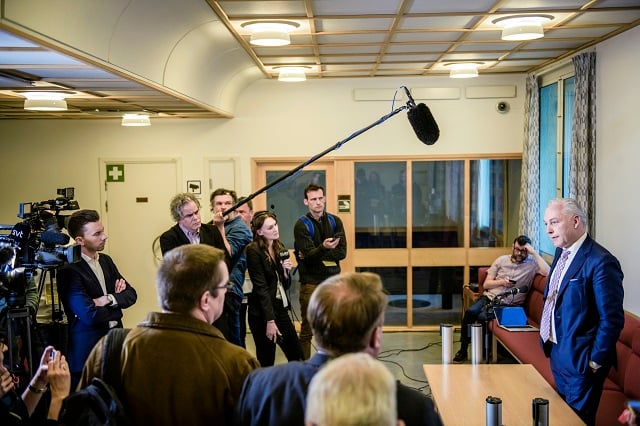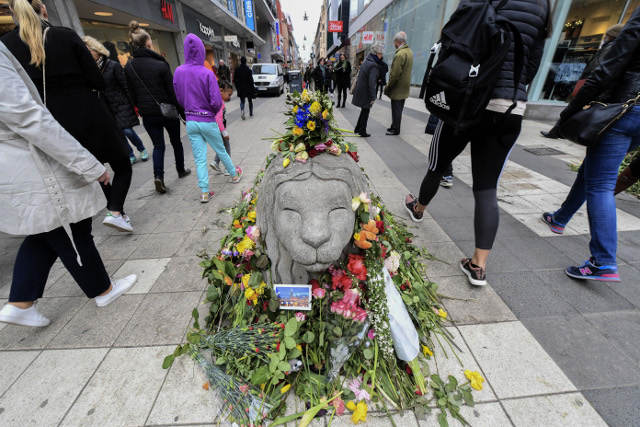A life sentence is extremely likely after prosecutors called for this in their closing remarks in late April. Even Rakilov's defence lawyer has not mentioned any other possible outcome.
“Any other punishment than life imprisonment is excluded,” prosecutor Hans Ihrman told the courtroom.
The judgment is expected to be delivered at 1pm in Stockholm's City Hall.
It will attract huge interest in Sweden, with the attack described by prosecutors as “perhaps the worst crime ever committed in Sweden”.
The country introduced laws on terrorist crimes in 2003, and since then has experienced only one other Islamist terror attack: in 2010, a man blew himself up in a suicide attack in Stockholm, lightly injuring two people.
Akilov drove a truck down a pedestrianized street in the city centre in April 2017, killing five people and injuring dozens more. He swore allegiance to terror group Isis the night before, though the group has never claimed responsibility for the attack.
MORE ON THE STOCKHOLM TERROR TRIAL:
Akilov pleaded guilty to terrorism on the trial's first day back in February, and said his goal was to “murder Swedish citizens”. Whether he is found guilty depends on whether the court decides he intended to “seriously harm Sweden as a country” with the act.
The court must also decide whether Akilov is guilty of all 124 counts of attempted murder he has been accused of. The 40-year-old suspect denies 18 of them.
A life sentence in Sweden lasts 16 years on average, with 34 years the longest term a person has ever served in the Swedish justice system.
Prosecutors have also called for Akilov to be expelled from Sweden after serving his sentence.
READ ALSO: How Sweden marked the one-year anniversary of Stockholm attack







 Please whitelist us to continue reading.
Please whitelist us to continue reading.
Member comments